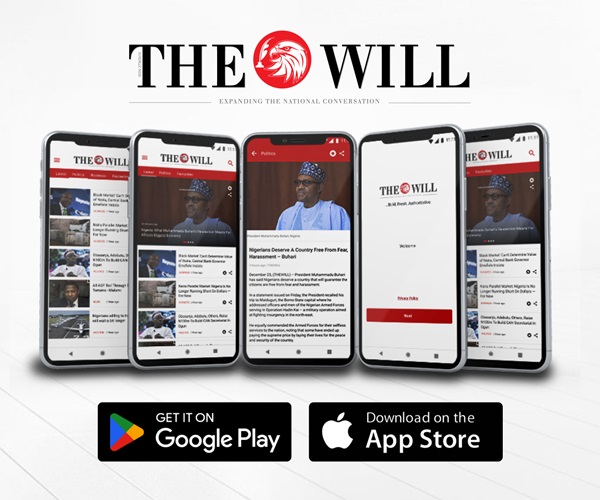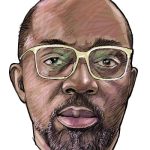December 29, (THEWILL) – This year, Nigeria embarked on a journey filled with transformative reforms, cultural milestones and significant challenges that tested the nation’s resilience, unity and vision for the future. From the corridors of power in Abuja to the bustling markets of Lagos, from the oil-rich Niger Delta to the culturally rich north, the year was a tapestry of events that painted a vivid picture of a country in a flux, striving for stability amidst change.
President Bola Tinubu’s administration’s suite of economic reforms aimed at reshaping Nigeria’s economic landscape came with severe consequences. The most contentious of these was the removal of petrol subsidy, a policy long debated due to its fiscal implications. The move was intended to redirect government savings towards infrastructure and public services but immediately led to a spike in fuel prices, inflating transportation and commodity costs.
Coupled with this, the unification of multiple exchange rates was another bold step towards economic transparency, aiming to curb corruption and stabilise the Naira. However, these reforms, while theoretically sound, were implemented amidst a backdrop of public skepticism, leading to a cost-of-living crisis.
Politically, 2024 was a year of reflection and critique. Celebrating 25 years of unbroken democracy, the nation looked back at its journey from military rule to a democratic state, acknowledging the strides made, yet recognising the road ahead.
However, the Independent National Electoral Commission (INEC) found itself under intense scrutiny. The Governorship Election in Edo State was particularly contentious, with reports of ballot box snatching, voter intimidation and significant discrepancies in vote counting. This led to a notable public outcry, with civil society organisations and opposition parties calling for reforms and even the resignation of INEC’s leadership. The fallout from the election not only questioned the integrity of the electoral process but also sowed seeds of doubt in the democratic process itself.
Economically, the year was marked by the operationalisation of the Dangote Refinery, a project promising to make Nigeria self-sufficient in petroleum products.
Since its commissioning, the refinery has encountered several challenges that have impeded its path to full operational capacity. Primarily, there has been a significant difficulty in securing a steady supply of crude oil, with allegations pointing to sabotage by oil cabals and international oil companies reluctant to sell to the refinery, forcing it to import crude from places like the United States. Regulatory and market dynamics have also posed challenges, with disputes over pricing and the government’s regulatory frameworks not always aligning with the refinery’s operational needs.
Worsening the economic pinch has been the national grid’s repeated collapses, which have brought economic activities to a standstill, highlighting the urgent need for infrastructure overhaul. However, Air Peace’s launch of direct, more competitively priced flights to the UK was a bright spot, a demonstration of Nigerian enterprise on the global stage. Yet, this was overshadowed by Nigeria’s slip to the fourth-largest economy in Africa, a position that challenged the narrative of growth under the new administration.
The social fabric of Nigeria was tested in 2024. The economic reforms led to a series of protests, with the most significant being the general strike, where workers across the nation demanded better wages and living conditions. This strike was not just about economic demands but was also a reflection of broader public frustration with governance.
The tragic stampedes at charity events underscored the desperation caused by economic hardship, which must push the government to reconsider its approach to social welfare. The decision this year to allocate N90 billion for religious pilgrimage subsidies further fuelled debates on government spending, especially when juxtaposed with the needs of the general populace.
Security remained a persistent issue, with banditry in the North and insurgent activities in the Northeast. The festive season in Nigeria has been marred by a series of tragic events, casting a pall over the celebrations.
In Sokoto, a recent surge in violence resulted in the loss of innocent lives. Meanwhile, a drone attack targeting soldiers in the north raised fresh concerns about national security. Adding to the grim picture, the killing of a priest by yet to be identified person(s) in Anambra and kidnappings highlights the ongoing struggle against religious extremism and criminality. These incidents have collectively dampened the festive spirit and underscored the nation’s ongoing battle against insecurity.
However, the arrest of Simon Ekpa, a key figure in the Biafran separatist movement, was a significant move towards addressing separatist agitations. This was somewhat marred by the international embarrassment when Nigerian presidential jets were seized in France due to unpaid debts, casting a shadow over the country’s diplomatic relations and financial management.
In the cultural sphere, Nigeria made headlines. Chidimma Adetshina’s journey to becoming the runner-up in the Miss Universe pageant, despite facing racial slurs, was a narrative of triumph over adversity. Samuel Nwajagu’s crowning as Mr. Universe was another cultural coup, further evidence of Nigerian beauty and talent on a global stage. The arts sector thrived with Nollywood’s international collaborations, bringing Nigerian stories to a worldwide audience. However, cultural expressions were not without debate; the reversion to the old national anthem was seen by some as a step back in time, while others celebrated it as a reconnection with the nation’s roots.
The entertainment industry, while vibrant, also faced its share of controversies, with artists like Burna Boy, Davido and Wizkid all entertaining and finding themselves at the centre of public discourse on various issues. The year was also marked by what many perceived as harassment of the press, with several journalists detained or intimidated, raising concerns about freedom of speech and the role of media in a democracy.
Judicially, the Supreme Court’s decision to grant and enforce autonomy to local governments was a landmark ruling that could alter the power dynamics within Nigeria’s federal structure, especially if followed judiciously. This judgment could lead to more efficient governance at the grassroots level but also sparked debates on the balance of power between federal, state, and local entities.
In the realm of sports and culture, Nigeria had moments of pride and challenge. Ademola Lookman’s accolade as the CAF Player of the Year was a highlight, symbolising the country’s acclaim on the international stage. However, the performance at the 2024 Paris Olympics was less triumphant, with Nigerian athletes facing hurdles in competing fairly and coming back home without any medals, reflecting broader issues in sports infrastructure and funding.
As the year draws to a close, Nigeria stands at a pivotal moment. The year was a lesson in governance, economics, and social policy, highlighting the need for reforms that are not only well-intentioned but also well-implemented. The cultural victories were a reminder of Nigeria’s soft power and the potential of its youth and creative industries. However, the challenges faced, from economic hardships to security threats and electoral integrity issues, underscored the continuous effort required to build a nation that is both prosperous and just. Looking forward, the lessons of 2024 could guide Nigeria towards a future where economic stability, cultural pride, and democratic values are not just aspirations but realities.






